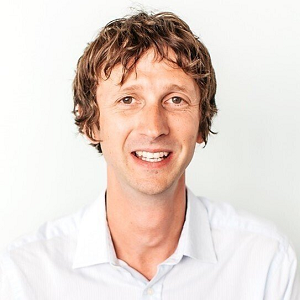A Q&A with Sam Zindel, MD of Propellernet and founder of Low Carbon Leaders

What inspired you to focus on Net Zero at Propellernet?
Two years ago, my business partner James and I became co-MDs of Propellernet. We’re a 40-person digital marketing agency, and it’s really in our DNA to think beyond the scope of our day-to-day jobs.
My personal wake-up moment came through my experiences as a parent. I went to my daughter’s school play and was moved by a poem read by one of her schoolmates which urged adults to act on climate change and the environment. It acknowledged that individually, we may only be capable of small actions but that collectively these actions can have a big impact. It really hit home for me.
How did you start your journey to Net Zero?
There is a standard format for achieving Net Zero, you measure your impact, then reduce your emissions against that as much as possible and offset that which you can’t remove.
Measuring your impact (your carbon footprint) is the clear first step but it can take time and cost money, as it’s a very technical process to do it well.
So, we didn’t follow this linear process at Propellernet! Before we knew our footprint, we set a target around climate and nature restoration, and decided to begin tree planting through a verified and certified partner. We use a Gold Standard organisation called Eden Reforestation Projects via a brilliant third-party platform called Ecologi.
There’s a lot of concern around greenwashing and planting trees, so I’m at pains to say this isn’t the only thing we’re doing. We came up with a vision of planting one million trees as fast as we could, and we galvanised the business around this vision. We knew there were learnings and knowledge to acquire, it got us started so I don’t regret starting there.
How has your approach to Net Zero evolved?
I was surprised to learn that our carbon footprint is actually small. We’re a single office and a bunch of people with laptops, and just eight per cent of our total footprint is the emissions we directly generate with the bulk of emissions in our supply chain.
Our plan is to not stop at net zero, but to do the most we can to reduce emissions and to invest as much as we can in restoring nature. This goes way beyond net zero, which some people call “negative emissions”. We’ve been calling it “sub-zero.”
What are your next steps?
We’ve set a short-term target of halving our emissions by the end of 2025, five years ahead of the IPCC report’s recommendation to halve emissions by 2030. Our second target is to plant a million trees by the end of 2023, and we’ve just gone past 200,000 so we are well on our way. Our third target is to influence other businesses, to be a case study ourselves, to support, advise and upskill.
We have also established Low Carbon Leaders – a network of leading businesses who want to go further than net zero. Part of this network is an initiative called The Million Tree Pledge – which now has 25 businesses signed up to plant a million trees by 2030.
I’ll also be running a couple of SME focused events at COP26 and hosting a TEDx event in Brighton after COP26 on 17 November. I want to influence as many small and medium sized businesses as possible to take bold climate action.
What kind of support did you access along the way?
We have joined the BCorp movement, a certification body that supports businesses that don’t just prioritise shareholder profit but have equal concern for all stakeholders – prioritising positive social and environmental impact. This is often referred to as “People, Profit, Planet.” Becoming a BCorp is a serious undertaking but the impact assessment is a fantastic blueprint for businesses.
Next, we’ve found the UN Race to Zero helpful, you can submit your climate pledge and they provide some useful information include an ever-expanding set of resources called the SME Climate Hub. Our carbon impact analysts Hope Solutions have also provided great advice.
Has being net zero helped you win work (and how)?
A PWC report on BCorps found they are growing 29x faster than the average SME. This seems to be the case for us. We have recently begun working with a prominent UK fashion retailer that is leading on sustainability, our shared values helped us win the pitch. Being sustainable has definitely converted business for us.
Being open, speaking about what steps we’re taking and wearing the BCorp badge puts us in a different category of suppliers. Not everyone regards climate action as a top priority, yet more and more companies want to work with other businesses that share their values. This is true of consumers too who are moving to more ethical shopping habits.
What advice do you have for other businesses that don’t know where to start? And what advice do you have for businesses that are on their way, but want to take it to the next level?
Firstly, do something now, if that isn’t paying money to measure to your footprint, don’t worry, galvanise, do something that feels ambitious and is really motivating.
Get more people within your business involved than just the leaders, a lot of people are feeling overwhelmed about the climate and want to use their energy to help with solutions.
If you’re on your way there – don’t stop at net zero, it’s very achievable for service sector SMEs, think bigger, we need some companies to go way past net zero.
